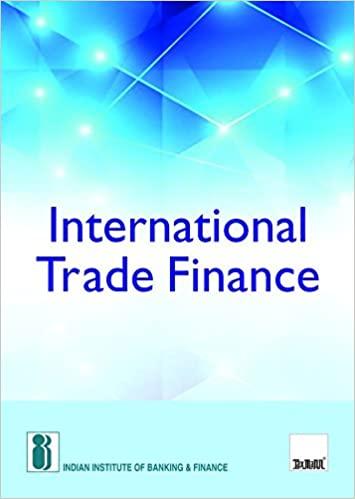Question
I need help with part 3 of this question. 3. Now assume that Smith has EPS of $1.89; 750,000 common shares outstanding; and recently paid
I need help with part 3 of this question.
3. Now assume that Smith has EPS of $1.89; 750,000 common shares outstanding; and recently paid a dividend of $0.65 per share. Additionally, the firm generated a net income of $1,417,500 and has common stockholders equity of $6,000,000 (book value). You believe the firm is in a constant rate of growth and your required rate of return for investments of this risk level is 18 percent. The firms common stock is currently trading for $45 per share. Based upon this information, would you be willing to purchase shares of common stock in the firm? Why or why not? Use both the dividend growth valuation model and free cash flow approach to determine your answer. The firms current free cash flow is $109,237. Use the firms weighted cost of capital of 15.83 percent as the appropriate discount rate. There are 50,000 shares of preferred stock outstanding.
| EPS | 1.89 |
| Common | 750000 |
| Net Inc | 1417500 |
| SH Equity | 6000000 |
| Req Rate Ret. | 18.00% |
| Value | 45 |
| Free Cash | 109237 |
| WCOC | 15.83% |
| Pref Stock | 50000 |
| Dividends | $ 0.65 |
| ROE | 23.63% |
| Retention | 65.61% |
| Growth | 15.50% |
| Value | $ 30.31 |
| IV | 120 |
| PV of Free Cash | $ 33,102,121.21 |
| Total Equity | |
| $ 25,586,565.66 |
PV=109237/(15.83%-15.50%)=$33102121.21
Total Equity=33102121.21-6000000-(5000*30.31)=25586565.66
3. Total equity value = PV of the free cash flow to the firm - market value of the debt - market value of preferred stock
PV of the free cash flow to the firm = free cash flow to the firm next year / (the cost of capital g)
Step by Step Solution
There are 3 Steps involved in it
Step: 1

Get Instant Access to Expert-Tailored Solutions
See step-by-step solutions with expert insights and AI powered tools for academic success
Step: 2

Step: 3

Ace Your Homework with AI
Get the answers you need in no time with our AI-driven, step-by-step assistance
Get Started


